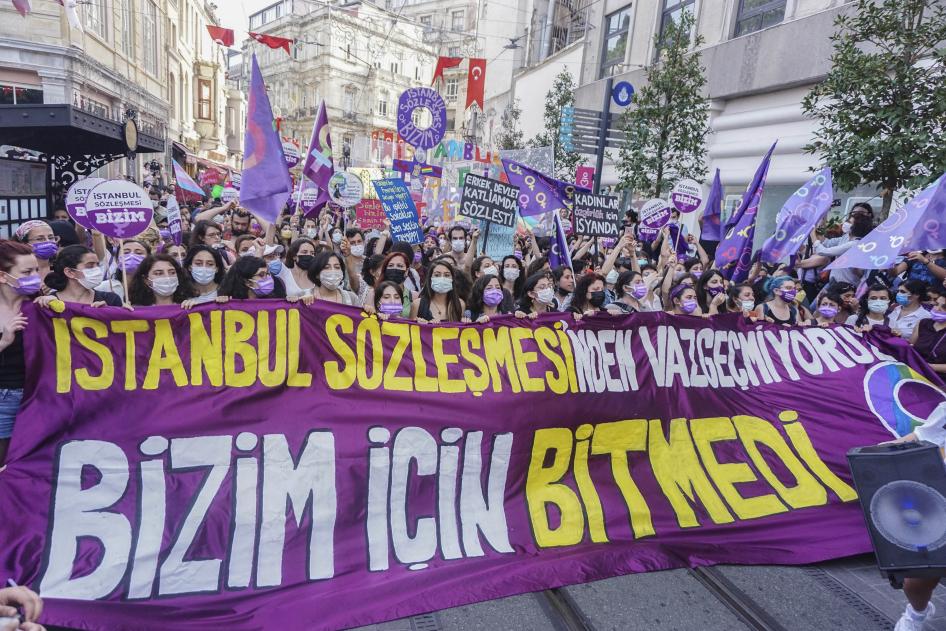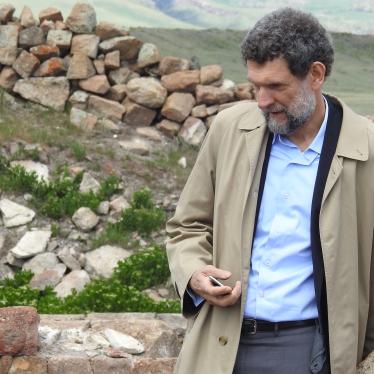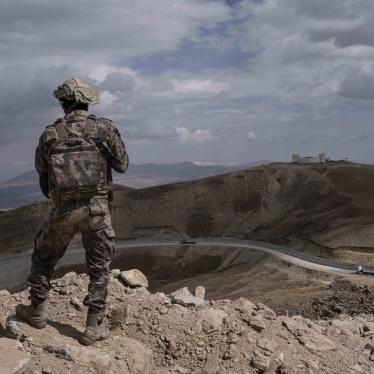(Istanbul) – The government of Recep Tayyip Erdoğan has set back Turkey’s human rights record by decades and flagrantly defies international human rights law, Human Rights Watch said today in its World Report 2022.
In 2021 Turkey was the first country to withdraw from the Council of Europe Convention on Preventing and Combating Violence against Women and Domestic Violence, known as the Istanbul Convention. In December Turkey’s refusal to free the human rights defender Osman Kavala, prompted the Council of Europe to begin the process for sanctioning the government’s persistent defiance of a binding European Court of Human Rights judgment ordering his release. Turkey is the second country in the history of the Council of Europe to face such a sanctions process.
“President Erdogan has over the past year followed a course to dispense with Turkey’s adherence to the framework of international human rights law,” said Hugh Williamson, Europe and Central Asia director at Human Rights Watch. “Withdrawal from the Istanbul Convention is a setback for women’s rights and efforts to combat domestic violence; and opting to be sanctioned by the Council of Europe rather than release Osman Kavala from arbitrary and unlawful detention demonstrates contempt for the European Court of Human Rights.”
In the 752-page World Report 2022, its 32nd edition, Human Rights Watch reviews human rights practices in nearly 100 countries. Executive Director Kenneth Roth challenges the conventional wisdom that autocracy is ascendent. In country after country, large numbers of people have recently taken to the streets, even at the risk of being arrested or shot, showing that the appeal of democracy remains strong. Meanwhile, autocrats are finding it more difficult to manipulate elections in their favor. Still, he says, democratic leaders must do a better job of meeting national and global challenges and of making sure that democracy delivers on its promised dividends.
Turkey has a restrictive environment for the media, for human rights defenders, for the LGBT community, for Kurdish political activists, and for other perceived government critics. Former leading politicians from the parliamentary opposition Peoples’ Democratic Party (HDP) have been detained for five years and a closure case against the whole party is before the Constitutional Court. Political control over courts is at the core of the deep erosion of rule of law in Turkey. Impunity remains entrenched for police abuses and for cases of enforced disappearances.
Turkey remains host to the highest number of refugees in the world, with an estimated 3.7 million Syrian refugees in the country, in addition to asylum seekers from other countries. Turkey continued building a wall in 2021 along its eastern border with Iran, and summarily pushed back Afghans and others apprehended attempting to cross the border.









